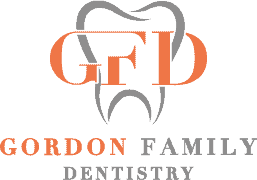An excruciating experience awaits those who must undergo tooth extraction. Pain management is a critical element of recovery, and understanding the duration of post-extraction pain is essential to a successful recovery.
This article explores the road to recovery and how long one can expect pain after tooth extraction while offering practical solutions to ease the journey.
What to Expect During Recovery
Pain is a normal part of the recovery process following a tooth extraction. Individuals need to understand that it can take up to 7-10 days to recover from a tooth extraction fully. During this time, individuals may experience mild to severe pain, depending on the complexity of the extraction. Additionally, they may be at risk of developing a dry socket, a complication where the blood clot that normally forms at the extraction site fails to develop. This can cause intense pain and increased healing time.
During recovery, individuals should carefully follow their post-operative instructions, such as avoiding hot foods, drinking cold liquids, and taking prescribed pain medication as needed. Attending a follow-up appointment with the dentist is important to ensure that the extraction site is healing properly and to minimise the risk of infection.
Determining the Severity of the Pain
The severity of the discomfort associated with a tooth extraction can vary. Patients may experience anything from mild discomfort to intense pain. Understanding the signs of infection and taking steps to reduce the pain is important.
To determine the severity of the pain after tooth extraction, it is helpful to consider the following points:
- The formation of a blood clot in the tooth socket is essential for proper healing. If the blood clot fails to form, the area can become exposed to bacteria, leading to greater pain and a longer recovery period.
- Eating soft foods and rinsing the mouth with warm salt water can help reduce pain after tooth extraction. Additionally, taking counter pain medication can provide relief.
- A dental professional should address post-extraction pain that persists or becomes more intense. It could be a sign of an infection or other issue.
Natural Pain Relief Strategies
Several natural strategies can be used to reduce post-extraction discomfort. For instance, after having a wisdom tooth extracted, a patient may opt to rinse their mouth with warm water every few hours to help reduce swelling and promote healing. Additionally, a cold compress applied to the affected area for a few minutes may help reduce inflammation and pain. Patients who suffer from gum disease may also benefit from taking antibiotics prescribed by their oral surgeon to help prevent infection from developing after the dental procedure.
To further reduce post-extraction discomfort, patients may opt to be careful with their gum tissue and avoid hard or crunchy foods. A painful condition known as a ‘dry socket’ may occur in some cases if the wound is not properly cared for, and it may require a visit to the oral surgeon for treatment. Patients should also be mindful of their oral hygiene and brush and floss regularly to help speed up healing.
Prescription Pain Medication Options
Prescription pain medications may be prescribed to help alleviate discomfort after a dental extraction. Dental professionals often recommend pain relievers to reduce swelling and help patients manage pain that can come with more strenuous activities, such as a root canal procedure. These medications are typically taken in small doses and may take effect within minutes.
When it comes to tooth extraction recovery, the timeline can vary depending on the type of extraction. Patients may feel relief within a few days for a simple wisdom tooth extraction. However, the recovery period can take up to two weeks for a surgical wisdom tooth extraction.
In addition to prescription pain medications, some dental professionals may advise patients to take other steps to reduce discomfort, such as using a saline rinse with a teaspoon of salt and avoiding strenuous activity. By following the advice of your dental professional, you can ensure a smooth recovery following your tooth extraction.
Dental Care After Tooth Extraction
Following a dental extraction, it is important to take proper care to ensure a successful recovery. After a tooth extraction procedure, certain steps should be followed to help speed up healing.
For the first 24 hours after tooth removal, avoiding strenuous activities such as exercising, lifting heavy objects, or playing sports is important. Additionally, it is important to avoid drinking through a straw, smoking, or drinking alcohol while the area heals. This will help to reduce the risk of developing a dry socket, which can be a sign of infection and can cause bad breath and jaw pain.
Gently cleaning the area with warm water, rinse, or cool water can help to reduce swelling. Additionally, applying a cold compress to the area can help to reduce pain and inflammation. Applying a gauze pad to the area and biting down on it for 15 minutes can also help with the healing process.
In the days after the tooth extraction surgery, it is important to look for any signs of infection, such as pus or a bad taste in the mouth. If severe tooth decay was the reason for the extraction, it is important to have the remaining teeth checked by a dentist to ensure that there is no further decay.
The Prognosis for a Full Recovery
The prognosis for a full recovery after a tooth extraction is generally positive. Patients may experience some pain and discomfort for a few days to a week after the procedure, but this should subside as the wound heals.
The following are some of the key points to consider for a full recovery:
- Inflammation and swelling of the cheeks and the area around the extraction site may occur and can be treated with cold compresses.
- Pain in the chest, shortness of breath, and other symptoms should be reported to the dentist immediately.
- Good dental hygiene is essential to prevent tooth decay, periodontal disease, and recurrence of the same problem.
Taking care of the wound and following the dentist’s instructions carefully is important to ensure a successful recovery. Additionally, regular check-ups can help prevent further problems such as crowded teeth and root canals.
For those who have had wisdom tooth removal, the recovery time may be longer, but the prognosis is still positive. With the right care, the wound should heal, and the patient can enjoy a natural tooth for many years to come.
Key Takeaways
The journey to recovery from a tooth extraction is not an easy one. It requires patience while allowing the body to adjust to the new environment.
There is no one-size-fits-all approach to the recovery process, as the severity of the pain will vary from person to person and require different levels of care.
Even though the pain can be intense, it is temporary. With the right strategies and tools, it will eventually pass, leaving behind a newfound appreciation for the value of healthy teeth and gums.
Like climbing a mountain, the road to recovery is long and winding, but the goal of full recovery can be reached with dedication and perseverance.
At Gordon Family Dentistry in Gordon, NSW, we understand that recovery from a tooth extraction is a long and winding journey. We are here to provide the best care and support that you need to make it through. Our experienced dentists in Gordon are here to guide you every step of the way, and we are committed to helping you achieve a full recovery.

